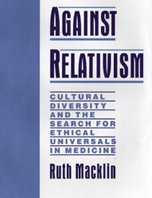 As for so many of us who did not encounter them in our native habitat, my first exposure to Jews was in the early '60s through Mad magazine. All these nutty, fun-to-say words--ferbissiner, schlep, schmuck, chutzpah--where did they come from? They were Yiddish. The Mad magazine people, the "usual gang of idiots", were Jews, from New York. They were funny in a new way--subversive, outrageous, ridiculous. Poking fun at everything, including themselves.
As for so many of us who did not encounter them in our native habitat, my first exposure to Jews was in the early '60s through Mad magazine. All these nutty, fun-to-say words--ferbissiner, schlep, schmuck, chutzpah--where did they come from? They were Yiddish. The Mad magazine people, the "usual gang of idiots", were Jews, from New York. They were funny in a new way--subversive, outrageous, ridiculous. Poking fun at everything, including themselves.What a relief to discover that there were other wisenheimers out there. I was not alone. The Three Stooges, another seminal influence on my early worldview were Jewish too, but I didn't realize that till years later.
At St. Newt's Prep we learned more about the Jews including actually meeting some, and watching movies like Night and Fog, about the Holocaust.
I went to Europe in 1975. In Berlin I worked for a month as a volunteer at the Sankt Gertrauden Krankenhaus in Wilmersdorf, a giant state-run nursing home. Many of the patients had been soldiers in WWII--real Nazis. Our job was to feed them, give them their schnapps and their pills, and just provide a bit of humanity. My Mad magazine Yiddish didn't get far but a few knew some English or French. Our primary task was to give them baths. Many were missing arms or more commonly legs. A few didn't want to be given a bath but it had to be done so some wrestling was involved. They were tough codgers and some were pretty big. I picked up a little German to add to my Mad Yiddish.
I spent December in Egypt, visiting friends I had met working in Holland. Then I flew from Cairo to Amman and spent a week in Jordan. I crossed the Allenby bridge and went into Israel where I spent ninety days. I worked for most of that time in Eilat, first for Israelis at the power station, then after being fired, for two Arab brothers who used day laborers to help provision ships docked or anchored at the port. The Israelis were by and large arrogant, abrupt, quarrelsome. They ridiculed and harassed the local Bedouin and had no interest in we few westerners whom they termed "beatnikim", and regarded as dabblers in adventure whereas they were true macho guys and lived the real thing. I took solace in the notion that for all their bluster their country would collapse in a month without massive subsidy from my country. The Arab brothers on the other hand though rough were honest and funny and I got along well with them.
Returning to Jordan over the same bridge on Easter Sunday of '76 I met Peter Jennings in the bus and talked to him. He was returning from a report from the West Bank and was with a blonde woman and a cameraman. Debonair! He spoke Arabic to the border guards. I continued my trip passing through Syria and Turkey. I noted again and again the cordiality of every other group of people in the region, in contrast to the rudeness of the Israelis. Old world manners versus frontier society gruffness. I made a distinction between Jews and Israelis, and developed a prejudice against the latter as a result of my experience with them, that took some time to overcome.
Back in Germany in '76 I worked for five months in Bavaria in the kitchen of a US armed forces recreation center on Lake Chiemsee between Munich and Salzburg. It had been used by the German army in WWII. The baker had worked there since the war. He showed us pictures of Nazis standing out back next to the dock, including him. Hitler's "Eagle's Nest" was just down the road in Berchtesgaden.
 One day I visited nearby Dachau.
One day I visited nearby Dachau.I saved most of my wages and in the fall travelled through Turkey, Iran, Afghanistan, Pakistan and India on the way to Australia. As an American I was popular in Iran. Everybody wanted to be my friend. I had an opportunity to remain there and teach, but declined. Three years later in '79 the revolution came. I was living in Japan and watched the Iranians on TV with their "Death to America" placards and later with American hostages and thought but surely, this cannot be! Didn't you want to be my pal, not so long ago? I realize you must engage in theatre, to say anything the tyrant of the day commands you to say, in order to survive. I understand. But don't expect me to take the sincerity of your outrage seriously, next time.
Over time my anti-Israeli sentiment faded. I appreciated their disinterest in religion, and came to terms with their brusque, unpleasant persona since it is after all a reaction to the docile public demeanor of their European ancestors, which contributed to their demise. The Nazis exploited the old-world manners of the European Jews. Their tendency to be polite and go along, in an effort to fit in to these cultures that barely tolerated them anyway, rather than make a tsimis, led them right into the trains. Thus, never again. Before it was "Don't make trouble!" Now it's "Don't fuck with the Jews". Better to be feared than liked, was the lesson. Fair enough.
And I've come to be wary of superficial friendliness. "Come join me for tea, my very dear friend!" is to be taken as seriously as "You have delivered a grave insult to my religion!" The friendliness and the anger are both ostentatious, theatrical. As if to say look, see how friendly I am! And look, see how angry you have made me! Such talk is designed to obscure the true, underlying motivations. But you can get too suspicious too. Much cordiality is genuine. But when is it genuine, and when is it not? It's hard for the dinky shallow Westerner to tell and you risk offense of course, by guessing wrong.
So maybe you put up with the rude jerks if they make their intentions clear at least. And maybe you put up with the sweet talkers without ever quite relaxing around them. Such prejudices and irritations swirl and simmer and reformulate themselves around the most recent outrage emanating from the region. Who do you trust today? Sift through the layers of history and intrigue again each time. Americans have no natural feeling for these layers that everyone in the Middle East carries in their bones. Bush the typical dumbass New-World simpleton only gets history as far back as cowboy movies. Yer with me or agin me. You're for democracy as defined by me, or you're with the terrorists.
And many in the Middle East who know better choose to ignore the complexity and seek to stir up the rabble for the venal and irreligious goal of remaining in power. To distract the populace from their miserable lot, claim your authority is divinely inspired, and blame an external agent for your shortcomings. The Jews! Though dishonest, it's too convenient a formula to give up. Religion is the opiate of the people, and anti-Semitism is the crack cocaine of prejudices. The addiction to it is completely reliable. Feh.








